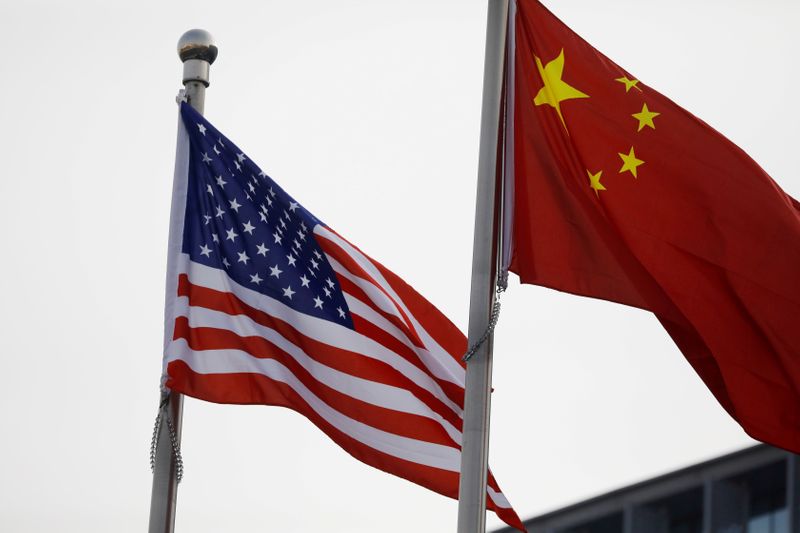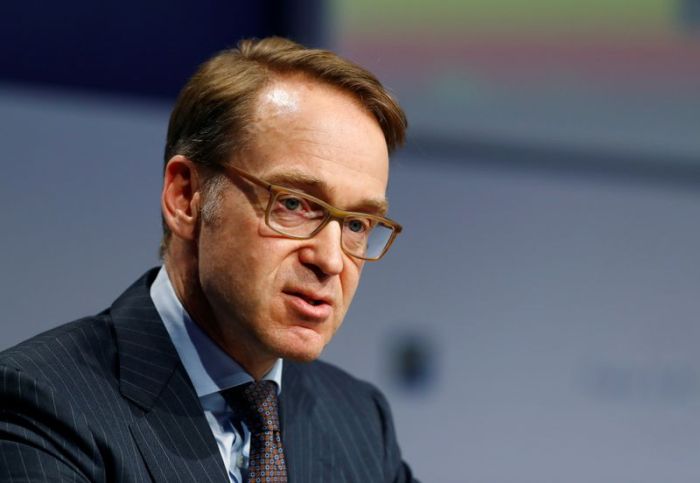GENEVA (Reuters) -The United States said on Wednesday that China’s industrial policies “skew the playing field” against imported goods and services, as well as their foreign providers, and that Washington would pursue all means to secure reforms.
China’s other major trading partners – including Australia, Britain, Canada and the European Union – also called for the world’s second-largest economy to carry out further liberalisation and open its vast markets, trade sources said.
In addition to industrial subsidies, other “unfair trade practices” include preferential treatment for state enterprises, data restrictions, inadequate enforcement of intellectual property rights and cyber theft, U.S. charge d’affaires David Bisbee told the World Trade Organization.
He was addressing a closed-door WTO meeting, which continues on Friday, to conduct the watchdog’s first review of China’s trade policy since 2018.
Both the United States and Canada denounced alleged “economic coercion” by China against other WTO member states who speak out against its practices.
“We also cannot ignore reports of China’s use of forced labour in several sectors,” Bisbee said, in an apparent reference to activists’ allegations regarding ethnic Uyghurs held in detention in Xinjiang, a charge that Beijing denies.
The United States would pursue all available tools to try to persuade China to make needed changes, he added in remarks made available by the U.S. trade delegation in Geneva.
China’s Commerce Minister Wang Wentao, who led its 20-member delegation, told the meeting: “Since the last review, China has stayed committed to deepening reform, expanding, opening up and growing its open economy at a higher level.”
“China has been reinforcing intellectual property protection by legislative, administrative and judicial means, and fulfilling its obligations on transparency,” he said.
Other WTO members urged China to press on with reforms to achieve fairer market competition and transparency, trade sources said.
The EU said that the degree to which China has reformed and opened is not commensurate with its weight in the global economy, or comparable to the access its goods have to the markets of other WTO members. It urged China to adopt further market reforms and play a role in the WTO equal to its economic weight.
Australia called on China to give up its access to special and differential treatment, granted when it joined the WTO 20 years ago, and said that China’s practices increasingly have been inconsistent with its WTO commitments, according to trade sources.
On the sensitive issue, China’s Wang said: “In keeping with the principle of balanced rights and obligations, China is willing to approach special and differential treatment with pragmatism and make more contribution within the WTO that is commensurate with its capacity.”
Japan voiced concern over a lack of transparency and urged China to address issues of trade-distorting measures and state-owned enterprises, trade sources said.
India said that bilateral trade was skewed in favour of China, with a growing deficit, the single largest it has with any country. India was seeking to engage Chinese authorities about serious efforts that are required, it said.
(Reporting by Stephanie Nebehay in Geneva; Editing by Andrew Cawthorne, Matthew Lewis and Andrea Ricci)
























